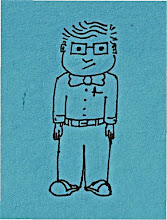I guess it's just as well. Shakespeare had more or less retired at this point. It was the second to last play he wrote, and it's co-authored by John Fletcher, who goes on to be a famous playwright of the era, but most famous of course for his association with Shakespeare and his appearance in Shakespeare in Love as the boy who loves Titus Andronicus.
Probably many Americans have learned the vast majority of their English history from movies. Camelot, The King's Speech, Robin Hood, A Man For All Seasons, The Other Boleyn Girl... anytime there is a dramatic interpretation of historical events, we know that there are going to be innumerable inaccuracies, and that's okay. Movies are meant to entertain... so are plays. But you would have hoped that Fletcher and Shakespeare would have been able to at least include some of the interesting things about Henry VIII's life...
Movies have always told me he was a dangerous and lusty monarch who left the Catholic church so he could get a divorce and then marry Anne Boleyn who he then had executed on false accusations of treason. This play is clearly a very careful handling of history in order to make sure that the King, who had died only 65 years before it was performed, would not be besmirched.
All of Shakespeare's histories are propaganda, but at least the one's chronicling the War of the Roses are terribly entertaining propaganda with geniuses like Falstaff, and heroic, banner-waving speeches ("Once more unto the breach, dear friends!"). This play is straight up boring, because you keep expecting Henry to get all horny and evil, but he really doesn't. He hits on Anne and turns on his first wife, Catherine, but everything is so tepid. The only really noteworthy thing about the play is that it was the last one performed at the Globe, which is sad.
I wonder if he had never written this play... is it possible that the original Globe would still be standing? I'd happily trade this play for the chance to see that massive wooden structure in whatever disrepair it might be after 400 years... yikes. Can a wooden building even last that long?
I've been trying to come up with something to say about this play for weeks and I'm sorry to say that this is the best I can do. At this point I just had to write something and move on. I'm approaching the end of Shakespeare's works and it's starting to make me kind of sad/reluctant. I've still got The Two Noble Kinsmen, some poems, maybe Edward III (partial authorship), and a play that was recently attributed in part to Shakespeare: Double Falsehood.
